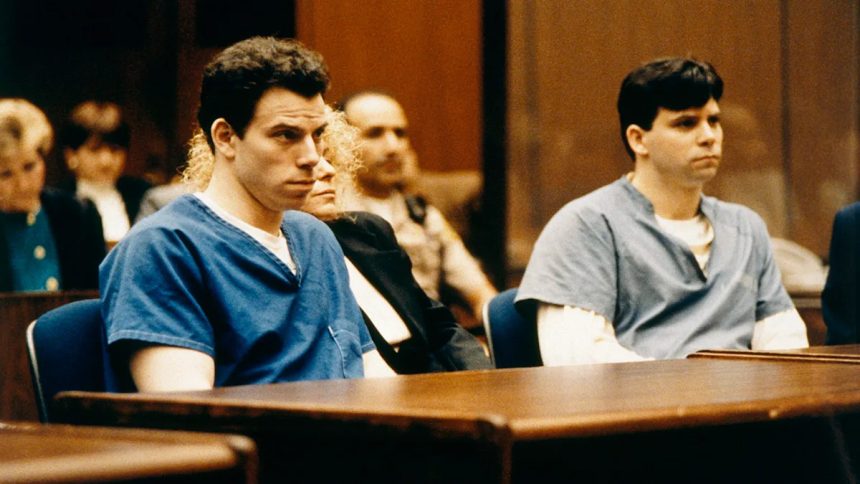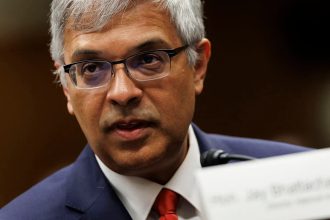A day after his younger brother was denied release from prison by the California Parole Board, Lyle Menendez’s steady march toward earning his freedom back 36 years after the two young men shot their parents to death in their Beverly Hills home suffered the same fate as he was also denied release.
Erik and Lyle Menendez have been in California’s prison system for over three decades now and they will remain there for three more years after separate hearings that were held for both. On Friday night, at the end of a 10-hour hearing, the Board agreed with an assessment submitted earlier this summer that both Erik and Lyle Menendez still pose a risk to public safety.
More from The Hollywood Reporter
The parole board hearings came after a protracted legal battle the brothers have undergone over the past year that resulted in their resentencing in May, from life in prison without the possibility of parole to 50 years to life in prison with the possibility of parole. This made both of them immediately eligible, but this week, their hopes and those of their family and legion of supporters were dashed — at least for now.
Lyle entered his hearing on Friday — which was attended by a separate representative from the L.A. District Attorney’s office than the rep who was at Erik’s hearing, as well as two separate Board commissioners, Commissioner Julie Garland and Administrative Law Judge Patrick Reardon — with the full knowledge of his brother’s unsuccessful bid for freedom. In 2022, 14 percent of parole hearings in California resulted in the inmate’s release from the prison system.
Cited during the Thursday hearing were Erik’s involvement with a prison gang in his early years locked up, possession of contraband cellphones, inappropriate behavior with visitors, drug smuggling and surprisingly, the fact that he killed his own mother was noted by the board members. Lyle has a slightly lower number of rule violations in prison over his decades of incarceration and is perhaps more involved in the rehabilitation of his fellow inmates. But this was not enough to convince the parole board that he is suitable for release.
Much of the discussion during Lyle’s hearing centered around his use of burner cell phones while in prison, and the contraband items may be what ultimately did both brothers in. Erik Menendez was caught with a burner phone as recently as January, when he was well aware of the risk that having it posed to his release. Also brought up by the Board during Friday’s hearing was Lyle’s plagiarism while he was attending Princeton and the fact that he bribed witnesses to testify using scripts he’s written during his initial trial.
None of these offenses were recent but none of them were countered enough by the good Lyle has done while in prison and the fact that during his resentencing hearing he was characterized by those who spoke from the facility where he’s held as a “model inmate.” They were also not countered by the outpouring of support from family members who, over the decades, have come to understand the horrors that took place inside the Menendez house and forgive the brothers for their crime.
Attorneys for the brothers have said that now that both brothers have been denied parole, the legal team will pivot to a habeas corpus petition filed by the brothers at the outset of their road to seeking freedom. This will go before a Los Angeles judge and involve the new evidence unearthed and presented in a Peacock documentary in 2023. In the film, a member of the boy band Menudo admitted he was sexually abused by Jose Menendez and a letter Erik wrote to his cousin affirming the ongoing abuse was presented; both of these new elements back up their initial defense of years of sexual abuse that was not allowed in their second joint trial in 1996 where they were found guilty and sentenced to life without the possibility of parole.
The brothers do have one other final chance at regaining their freedom, though, and it hinges on the politician considered the great hope for the Democrats in 2028. Under a 1988 state law, California’s governor has a unique power to approve, deny, or modify the decisions of the parole board in murder cases where the person was sentenced to an indeterminate term. Now the parole board’s decision could undergo an internal review that could last for up to 120 days. At that point, Newsom has 30 days to affirm or reverse the decision, if he so chooses.
Best of The Hollywood Reporter
Sign up for THR’s Newsletter. For the latest news, follow us on Facebook, Twitter, and Instagram.







